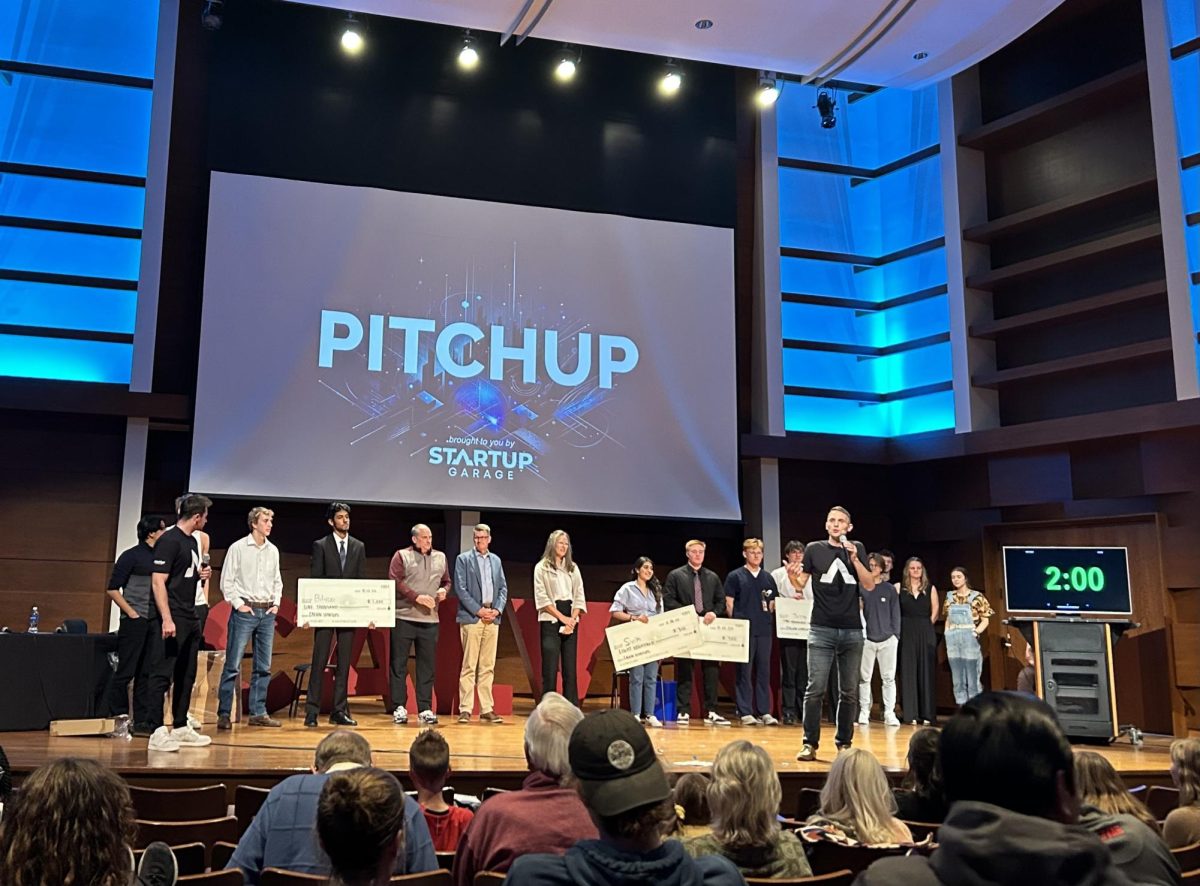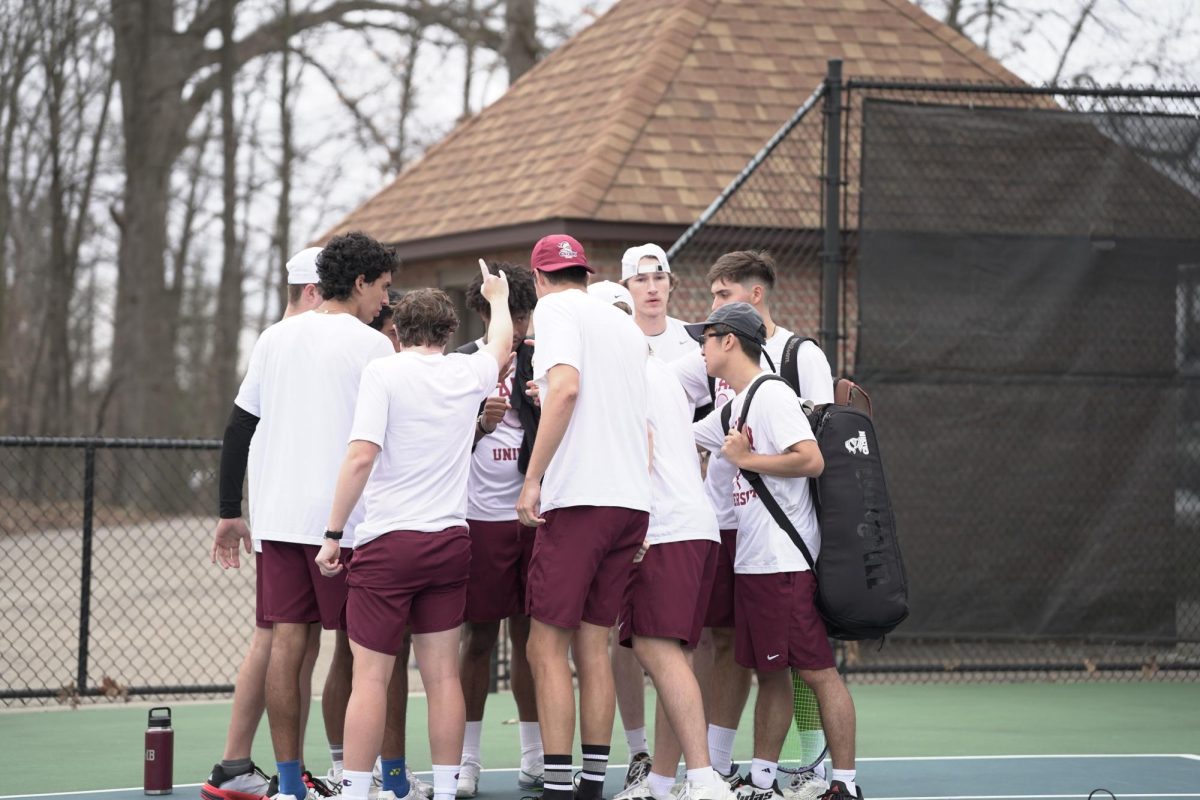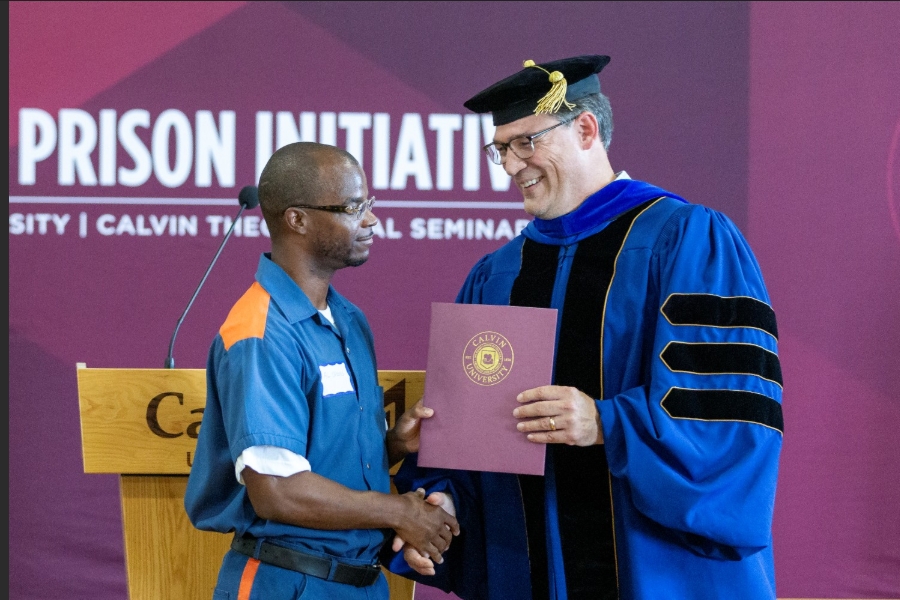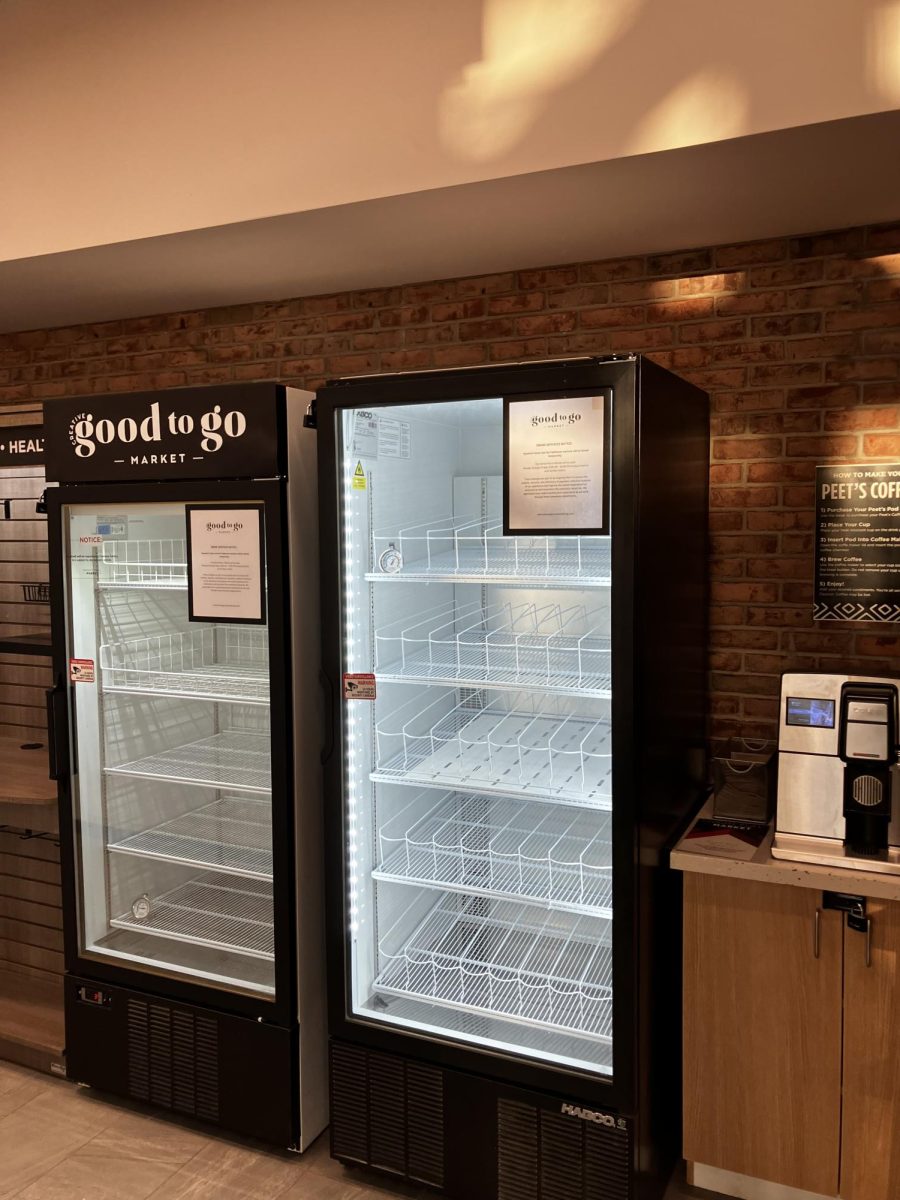Last Wednesday, 12 Calvin students presented their ideas – and four walked away with prizes – during Calvin’s fourth annual Pitchup.
The concept of Pitchup is similar to that of the popular show Shark Tank. On Shark Tank, aspiring entrepreneurs showcase their products to a panel of celebrity investor judges. In the Calvin version, Calvin students with a business dream have two minutes to pitch their idea and describe why it will perform well. The ideas are then judged by three judges and through audience voting.
The prizes ranged from $1000 to $250. This year, Pitchup also added a little twist: this year’s grand prize winner was also invited, along with four friends of their choice, to dinner at DeWit Manor with President Elzinga, who helped judge the event along with James Timmer, Calvin’s Director of Athletics, and Bobbie Medema, the former CEO of Notions Marketing. Chimes had the opportunity to attend this event and talk to some past and current participants.
PitchUp shares many aspects with Shark Tank, However, the atmosphere of Pitchup is much more fun and encouraging than that of the show. This year’s grand prize winner, Daniel John, a senior studying Mechanical Engineering, Biology, and Chemistry, noted that the positive atmosphere of Pitchup helps students develop their entrepreneurial and communication skills. “I think it forces you to think of creative ideas, and then to learn how to present it and consolidate it into two minutes,” he said.
Judging
Naomi Ross, another participant in this year’s competition, noted this difference in atmosphere as well. “When you watch Shark Tank, you just feel bad for the pitchers, and you see them getting shredded,” she said. “I think they do a very nice job creating almost like a community within Pitchup, like a community of support.”
Malachi VerWys, the fourth-place winner of Pitchup 2023, noted that the feedback of the judges contributed to this positive environment. “Definitely everyone who went up there had a little nerves that they had to get over. But overall I think it’s just a fun atmosphere. The judges are really trying to help you out. They’re not trying to be really critical,” he said.
According to John VerLee, the director of Startup Garage, there are four factors on which pitches are judged. The first is viability, asking, “could this business actually make enough money to survive? Or, is it just a pipe dream?” The second is feasibility: “do we have the technology currently to be able to create this? Or is it too far out there, too visionary, too in the future?” Third is desirability: “do people want it? Is there a market for this thing? And, is that market of significant size?” Lastly, pitches are judged on presentation and how well the presenter expresses their ideas.
This year’s winners
This year’s PitchUp had twelve contestants with pitches ranging from private equity for the public, to a wedding resource app, with a notable number of ideas from the medical field.
Kai Zwarg won fourth place and a $250 prize for a pitch on Justo, an adjustable operator stool designed to “correct suboptimal posture and provide support” for dentists who frequently experience neck and back pain due to their profession.
Third place, with a prize of $400, was claimed by RestoVision presented by Ryan Schummer. RestoVision uses special glasses paired with virtual reality headsets to help restore vision for the visually impaired. According to Schummer, it works by converting video into gamma radiation, information the brain can understand without visual information, allowing visual information to be perceived while bypassing the eyes. The idea was born from Schummer’s own experience: his cousin has a cochlear implant.
Second place and $800 was awarded to Haleema Jamil for her company Sivik. Sivik was born from her own experiences applying for colleges abroad and facing the challenges that arose. Sivik is a “one-stop education counseling service” for students trying to apply to schools outside of their own country. According to Jamil, Sivik has been running for 3 years and has already helped around 400 students find smoother placements at schools internationally.
The grand prize of $1000 and a dinner with President Elzinga at DeWit Manor was won by Daniel John for Biliroo. Biliroo is a phototherapy device meant to treat infants with jaundice in low-resource settings. It works by filtering sunlight, leaving only the correct wavelengths for treating infant jaundice. This device, according to John, is produced at a tenth of the cost of traditional phototherapy settings, running around $40. It also does not require massive amounts of electricity to power so can be used in settings where the reliability of electricity is questionable.
Benefits to pitching
For those interested in participating in Pitchup, Ross and VerWys noted that the time commitment is very flexible. Ross said she spent about four or five hours developing and practicing her pitch, but that the time other students spent on theirs varied. “I think the amount of time that people put in it depends very much on how serious they are about their business,” she said. VerWys said he spent around three hours in total on his pitch, “But that’s for a very rudimentary idea.”
While some students’ ideas are in the very beginning stages of planning, others have already taken serious steps toward making their products a reality. John, for example, plans to use the prize money towards continuing to develop his product Biliroo. “We want to do clinical trials next year,” John noted.
Ross explained that the act of making a pitch can help in the creative process. “For anyone that has a business idea, just even creating your pitch is really important for formulating your ideas,” she noted. “For me, being in the very beginning stages of my business, I’m very thankful for the opportunity and the pressure to have to really make my idea concrete.”
StartUp Garage
PitchUp is only one aspect of what Startup Garage does. For students who might have missed this year’s competition but are interested in getting involved, Calvin offers an entrepreneurial-minded community during the rest of the school year through Startup Garage, “If you go to the Startup Garage meetings and have an idea, there are so many resources to get funding and actually start your idea,” Sand said, who first heard about Pitchup through Startup Garage.
“The doors are open to all of campus to come in and to hear either a story of an entrepreneur and how they got started, or to go through a workshop, whether it’s how do you start your own business or how do you get your first five customers, some of these key entrepreneurial lessons. And it’s not simply learning about the different principles, but it’s actually helping students launch those companies of their own,” VerLee said.
John, who also learned about the competition by attending Startup Garage meetings, said he attended Pitchup his freshman and sophomore year and “was inspired by them to do it for the first time this year.”
Startup Garage meets in the School of Business on Wednesday nights.











